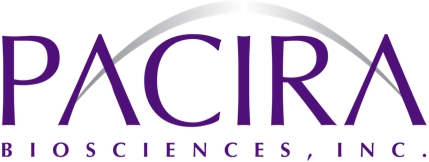WellStar Health System and Pacira Pharmaceuticals Announce Partnership to Minimize Opioid Use and Standardize Outcomes Across Surgical Procedures
PARSIPPANY, N.J. and ATLANTA,
|
|||
In partnership, WellStar and Pacira will develop procedure-specific pain management protocols centered on a foundation of non-opioid medications that can effectively control pain without the side effects and long-term risks of misuse, abuse or addiction associated with opioids. As such, the organizations intend to demonstrate the significant positive impact on patient recovery and hospital economics achievable when healthcare and industry work together to advance a mutual cause to improve patient care.
“Minimizing unnecessary exposure to opioids is an integral component for our patients as they recover from surgery,” said John A. Brennan, M.D., FACEP, executive vice president and chief clinical integration officer of
Under the terms of the partnership, the organizations will develop a suite of clinician-facing opioid education materials, as well as quality improvement data that tracks the progress of protocol implementation and the resulting reduction in overall opioid consumption. This data will guide next steps in optimizing existing or developing new care pathways. A playbook of best teachings and case studies will be developed to inform best practices in transferring protocols from one hospital to an entire hospital system, which can be provided as a resource for other similar system-wide endeavors.
“We are excited and proud to partner with
Beyond the unwanted and potentially life-threatening adverse events associated with opioid use, research continues to uncover the connection between their introduction in the hospital setting and the overall societal opioid burden.
A JAMA Internal Medicine article highlighted that for opioid-naive patients, many surgical procedures are associated with an increased risk of chronic opioid use in the postsurgical period;1 perhaps more startling, a recent national survey revealed that 1 in 10 patients admit they’ve become addicted to or dependent on opioids after being exposed to these medications following an operation.2
Adding further validity to the importance and impact of these collaborative opioid-sparing protocols is the element of patient preference. A 2014 study uncovered that more than half of postsurgical patients prefer a non-opioid option,3 and a national survey conducted in 2016 found many patients have indicated they are delaying surgery due to fear of taking opioids to manage their pain.2
According to a 2016 analysis of health care claims, opioids also significantly contribute to health care system costs.4 The study showed that the national aggregated dollar value of charges related to opioid-related diagnoses increased more than 1,000 percent from 2011
Additionally, the
About
About Pacira
Forward Looking Statements
Any statements in this press release about the company’s future expectations, plans, outlook and prospects, and other statements containing the words “believes,” “anticipates,” “plans,” “estimates,” “expects,” “intends,” “may” and similar expressions, constitute forward-looking statements within the meaning of The Private Securities Litigation Reform Act of 1995. Actual results may differ materially from those indicated by such forward-looking statements as a result of various important factors, including risks relating to: the success of the company’s sales and manufacturing efforts in support of the commercialization of EXPAREL; the rate and degree of market acceptance of EXPAREL and the company’s other products; the size and growth of the potential markets for EXPAREL and the company’s ability to serve those markets; the company’s plans to expand the use of EXPAREL to additional indications and opportunities, and the timing and success of any related clinical trials; the related timing and success of
Media Contacts:
(770) 630-0106
pr@wellstar.org
Susan Mesco, (908) 391-8283
susan.mesco@pacira.com
Coyne Public Relations
Alyssa Schneider, (973) 588-2270
aschneider@coynepr.com
References
- Sun EC, Darnall B, Baker LC, Mackey S. JAMA Intern Med. Published online
July 11, 2016 . doi:10.1001/jamainternmed.2016.3298. Wakefield Research on behalf ofPacira Pharmaceuticals . Opioid Addiction and Dependence After Surgery is Significantly Higher than Previously Known. 2016.- Gan TJ, et al. Curr Med Res Opin. 2014;30(1):149-160.
- FAIR Health White Paper. The Impact of the Opioid Crisis on the Healthcare System. September 2016.
- Florence, Curtis S. PhD, et al. Medical Care. 2016;54(10): 901-906.

